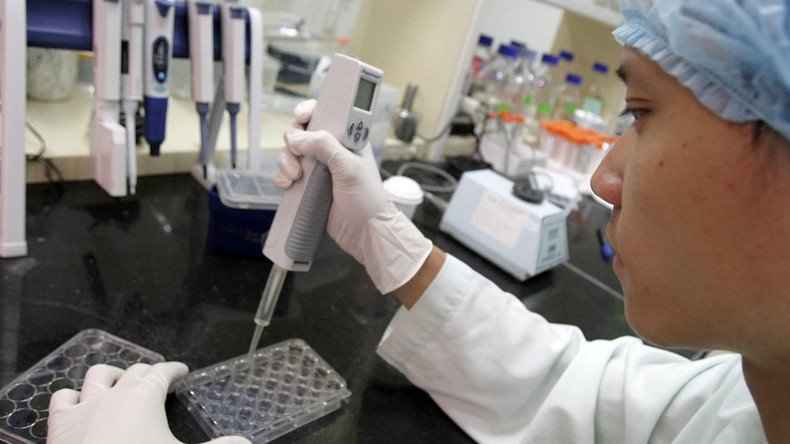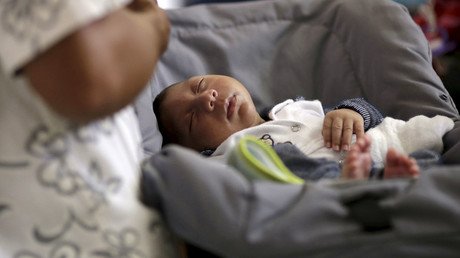New dengue fever vaccine ‘effective in 100%’ of human trial subjects

US scientists have successfully tested a vaccine against the mosquito-borne virus, which infects 400 million people, annually. If further mass human trials go as planned, a dengue fever vaccine could be available by the end of the decade.
Last year, 48 healthy volunteers were randomly injected with a placebo, or the vaccine, known as TV003, by researchers from the University of Vermont and Johns Hopkins in Baltimore.
Six months later, 41 of the test subjects returned, to be infected with a genetically-modified version of the most aggressive strain of dengue, originally found in Tonga in 1974, which shows up in blood tests and produces a rash – like a real infection – but does not cause complications.
The outcome was startling: all 21 people injected with TV003 were completely healthy, while the other 20 all presented with the dengue-2 strain in their bloodstream, with 16 developing the characteristic rash.
"The results of this work are very straightforward and quite conclusive," said Beth Kirkpatrick, a professor of medicine at the University of Vermont, in a media conference call. "The bottom line is that the vaccine appears to be 100 percent efficacious."
Dengue fever, a close relative of the Zika virus, also carried by the Aedes mosquito, passes with no or barely-noticeable symptoms in most of its victims. But about 2 million develop a serious form of the disease, which involves high temperatures, severe headaches, joint pain and bleeding. About 25,000 people a year – many of them children - develop dengue shock from blood loss and die.
Dengue is a particular challenge for medical researchers, as it is not a single disease, but exists as some combination of four interrelated strains. If a vaccine protects against one, but not other strains, this could render the patient even more vulnerable to the variants it does not cover, particularly as dengue is more severe each time a patient is infected with an additional strain.
"Normally, with a mosquito-borne disease, you have it once and you're over it. Dengue has been the problem child because of the four types," said Sarah George, an associate professor of infectious diseases at St. Louis University, in an interview with CNN.
A recently approved vaccine, Dengvaxia has that exact problems – suppressing immune response, and exacerbating symptoms, in children under 9. It also offers no better than 75 protection against any strain, and is particularly weak against dengue-2.
This makes the breakthrough particularly important.
“The dengue-2 serotype is considered the relatively weaker component in this, and other, candidate dengue vaccines, so its ability to confer protection from a challenge with dengue-2 virus was encouraging,” said Anna Durbin, who led the Johns Hopkins team, and is a lead author for the study, just published in Science Translational Medicine.
Brazilian researchers were so impressed by the results, which they were shown in advance, that last month they started a mass Phase 3 trial, involving 17,000 subjects, who have been given TV003. It is scheduled to be completed by 2018, and will be one of the final steps towards the widespread licensing of the vaccine.
As to the US teams, they plan to carry out experiments using the dengue-3 strain, and to join the race to complete a vaccine against Zika, which has become pandemic in recent months.
"Zika trials will aid not only vaccine development," promised Durbin, "but also to help to learn more about Zika itself."














